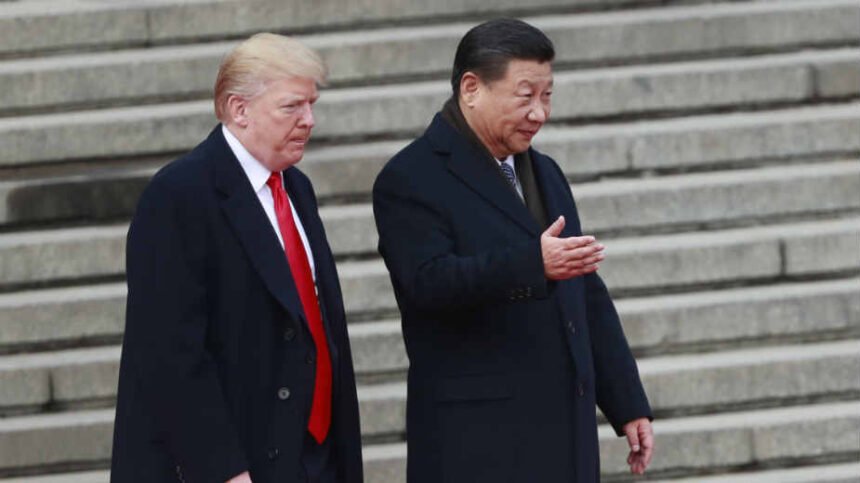The ongoing economic conflict between the United States and China has intensified, with former President Donald Trump escalating his trade war rhetoric and Beijing vowing to “fight to the end.”
Trump, who had already clashed with China during his first term over tariffs and technology restrictions, has revived his aggressive trade policies in his second term. In February, he imposed a new 10% tariff on Chinese imports, which led China to retaliate with tariffs on American goods such as coal, natural gas, and agricultural machinery. Trump then increased tariffs to 20%, prompting China to target critical U.S. agricultural products and tighten regulations on American companies operating in China.
Most recently, Trump threatened to raise tariffs on Chinese goods to a staggering 54%, exempting only specific products like pharmaceuticals and chips. In response, China introduced new export controls on rare earth metals and suspended imports of U.S. agricultural products from several companies.
The escalating tensions have now reached a boiling point, with Trump warning that tariffs could increase to 104%, effectively impacting nearly all Chinese imports. China, however, is undeterred, with the Foreign Ministry accusing the U.S. of using “pressure” and “coercion” to force its will.
“Nobody wins in a trade or tariff war, and protectionism accomplishes nothing,” said Chinese Foreign Ministry spokesperson Lin Jian. He stressed that China is not creating problems but will not back down from the U.S. demands. Beijing has called on Washington to show “respect” if they wish to engage in meaningful trade talks.
Despite Trump’s repeated claims of a $1 trillion U.S. trade deficit with China, which lacks supporting evidence, the actual U.S.-China trade deficit was about $295 billion in 2024. China’s global trade surplus for the same year was nearly $1 trillion.
Experts, including Dan Wang from Eurasia Group, warn that Trump’s proposed tariffs could completely wipe out the profit margins on Chinese exports, and China is likely to retaliate in kind. “China is serious when they say they will fight to the end,” said Wang, predicting further escalation.
Alfredo Montufar-Helu from The Conference Board cautioned that Beijing would not appear weak and that this conflict could lead to long-term economic consequences. Sky News analysis suggests that if the tariff war continues, it could severely damage U.S.-China trade relations and extend into cultural and security issues, such as a ban on American films or the suspension of cooperation on issues like fentanyl trafficking.
The consequences of a full-blown economic separation between the two largest economies in the world could reshape global relations, potentially setting a precedent for how international trade and diplomatic interactions unfold in the future.







